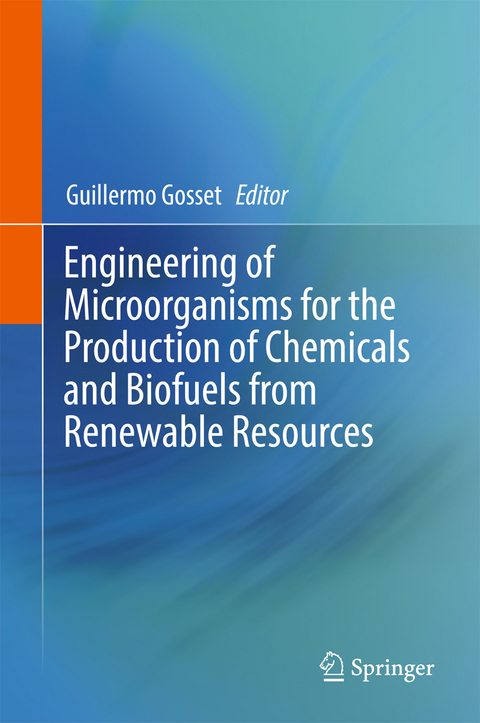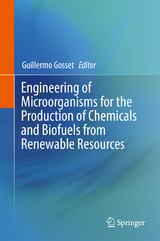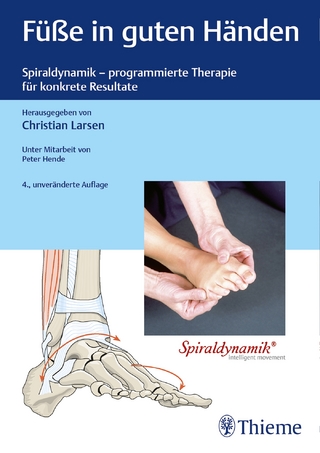Engineering of Microorganisms for the Production of Chemicals and Biofuels from Renewable Resources
Springer International Publishing (Verlag)
978-3-319-51728-5 (ISBN)
The microbial species reviewed in this book possess particular advantages as production strains and are currently employed for the synthesis of numerous biofuels and chemicals. The book reviews the general and strain-specific genetic engineering strategies for the improvement of sugar mixtures and glycerol catabolism. The issue of lignocellulosic hydrolysate toxicity is addressed in several chapters, where genetic engineering and adaptive laboratory evolution strategies are reviewed and discussed.
The objective of this book is to provide the current knowledge regarding strategies for the generation and improvement of microbial strains designed for the transformation of renewable raw materials into useful products. This book aims to become a reference for researchers and students working in this field.
Guillermo Gosset obtained his Ph.D. degree in Biotechnology from the Universidad Nacional Autónoma de México (UNAM) in 1993. Since 1988 he has been a research scientist at the Biotechnology Institute/UNAM. His main research interests are related to metabolic pathway engineering and microbial physiology. Gosset's work has appeared in more than 105 publications and eight patents. Several of these publications are utilized as examples in textbooks in the field of metabolic engineering. His industrial experience includes two years as a visiting scientist at Genencor International (Palo Alto, U.S.A.) and one year in Metabolic Explorer (Clermont-Ferrand, France). He has been a Senior Editor on the editorial board of the Journal of Molecular Microbiology and Biotechnology since 2006 and Associate Editor of Microbial Cell Factories since 2014.
Part I: Moral visions of global education.- Chapter 1. Cosmopolitanism and educating the citizen of the world (Henk ten Have).- Chapter 2. Global bioethics and global education (Solomon Benatar).- Part II: Goals and challenges of global ethics education.- Chapter 3. Goals of global ethics education (Volnei Garrafa and Thiago Rocha da Cunha).- Chapter 4. Priorities in the teaching of ethics in a globalized world (Renzo Pegoraro).- Chapter 5. Can global ethics education solve inequities? (Leonardo de Castro).- Chapter 6. Interculturality and cultural competence (Ayesha Ahmad).- Chapter 7. Resources for global ethics education (Wanda Teays).- Part III: Practices of global ethics education.- Chapter 8. Permanent e-learning in the teaching of ethics (Susana Vidal).- Chapter 9. Arts and humanities as instruments for global ethics education (Jan Helge Solbakk).- Chapter 10. To see differently: incorporating the arts into the bioethics curriculum (Terry Maksymowych).- Chapter 11. Thecinema as instrument for teaching and learning global ethics (Flavio Paranhos).- Chapter 12. The role of case studies in global ethics education (Willem Hoffmann).
| Erscheinungsdatum | 18.02.2017 |
|---|---|
| Zusatzinfo | VII, 200 p. 18 illus., 15 illus. in color. |
| Verlagsort | Cham |
| Sprache | englisch |
| Maße | 155 x 235 mm |
| Themenwelt | Medizin / Pharmazie ► Physiotherapie / Ergotherapie ► Orthopädie |
| Naturwissenschaften ► Biologie ► Genetik / Molekularbiologie | |
| Technik ► Umwelttechnik / Biotechnologie | |
| Schlagworte | Biomedical and Life Sciences • biomedical engineering • Biomedical Engineering/Biotechnology • Biotechnology • Consolidated Bioprocessing • Genetically engineered microorganisms • lignocellulosic biomass • Medical Research • Metabolic Engineering • Renewable feedstocks |
| ISBN-10 | 3-319-51728-7 / 3319517287 |
| ISBN-13 | 978-3-319-51728-5 / 9783319517285 |
| Zustand | Neuware |
| Haben Sie eine Frage zum Produkt? |
aus dem Bereich




